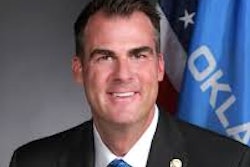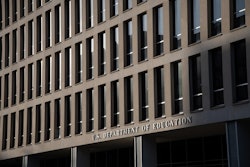MIAMI
A panel of Hispanic college and university presidents said affordability is greatly affecting Hispanic students’ access to college and offered suggestions for boosting public investment in higher education at a plenary session at the American Association of Hispanics in Higher Education’s annual meting.
Time and again the speakers, Dr. Max Castillo, president of the University of Houston’s downtown campus, Dr. Ricardo Fernández, president of Lehman College at the City University of New York and Dr. Marcelina Vélez-Santiago, president of the Pontificia Universidad Católica de Puerto Rico, came back to the issue of affordability.
Castillo described one of the “seismic transformations” in higher education affecting access as the disinvestment of the government in higher education. No matter the state, “it’s not unusual to go into a legislative session and continuously defend your school,” he said in his presentation to the large crowd of Hispanic graduate students, faculty and administrators.
Education is “no longer seen as a public good, but as a private investment,” by the federal government, he noted. The cost of higher education has been transferred to students, and student support has been transformed into loans, Castillo said. “Many of our Hispanic students don’t like to apply for loans.”
Perhaps a side effect of shifting the financial burden of maintaining higher education institutions onto students is that over 70 percent of college students in Texas are nontraditional. This issue is also affecting students in Puerto Rico, Vélez-Santiago said in her presentation.
“Affordability is a dilemma and big problem for our students,” she said. About 90 percent of the students at PUCPR receive a Pell Grant. Notably, enrollment at for-profit higher ed institutions in Puerto Rico has grown 152 percent. “The private sector in higher education grew with the help of federal aid,” she pointed out, while enrollment in public institutions dropped 11 percent between 2001 and 2006.
Meanwhile, at CUNY the cost of education is also going up for students, Fernández said. “Whenever there is an economic crunch, tuition is raised.” While that tuition will inevitably increase over time, administrators and leaders are challenged with keeping college affordable and maintaining their faculty and infrastructure.
Since minorities often choose the more affordable route of attending a two-year college first, Castillo suggested that one way to increase the number of Hispanics receiving bachelor’s degrees is to work with the state and community college systems to ease the transition. “It has to be a statewide issue,” he said.
Improving accountability is a critical means of showing the public how tax dollars are being spent and imploring the government for further support, Castillo said. Fernández reiterated the importance of traditional means of support, such as the presidential duty of collecting funds through philanthropy and fundraising as a way to counterbalance the increasing burden on students.
But Castillo underscored the importance of overcoming legislative impediments, or what he called “legislation by anecdote.” Too often legislators address problems with “bad legislation” that is propelled by hearsay rather than data, Castillo said, concluding that to address the issue of affordability, “We need another equivalent to the GI bill.”
Click here to post and read comments
© Copyright 2005 by DiverseEducation.com















